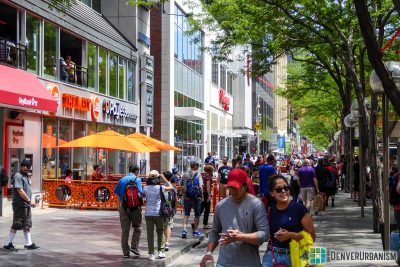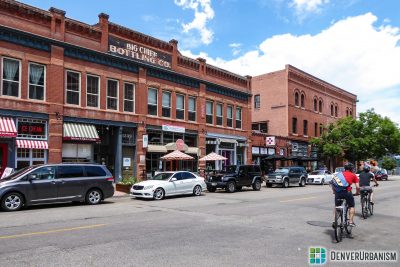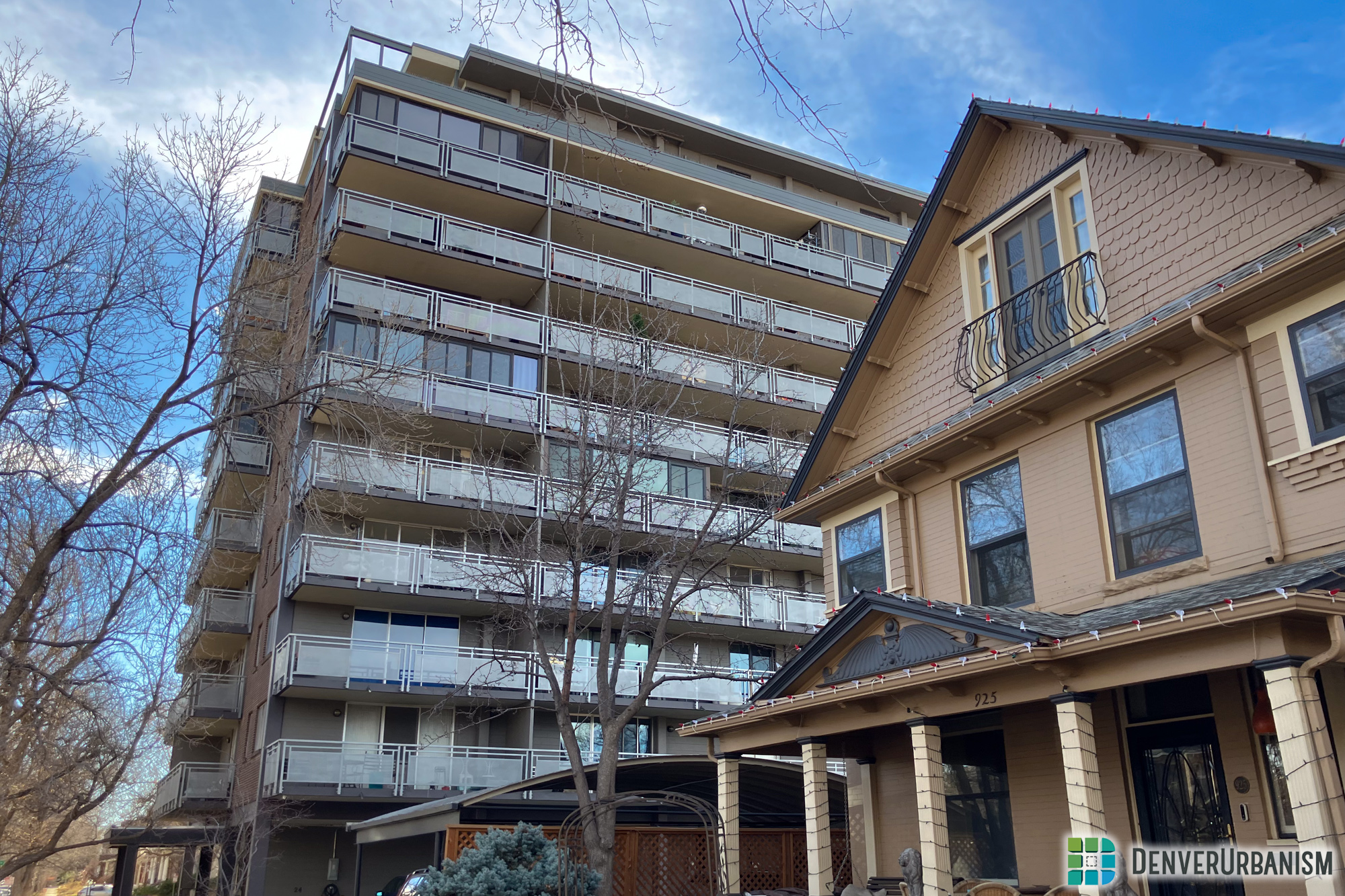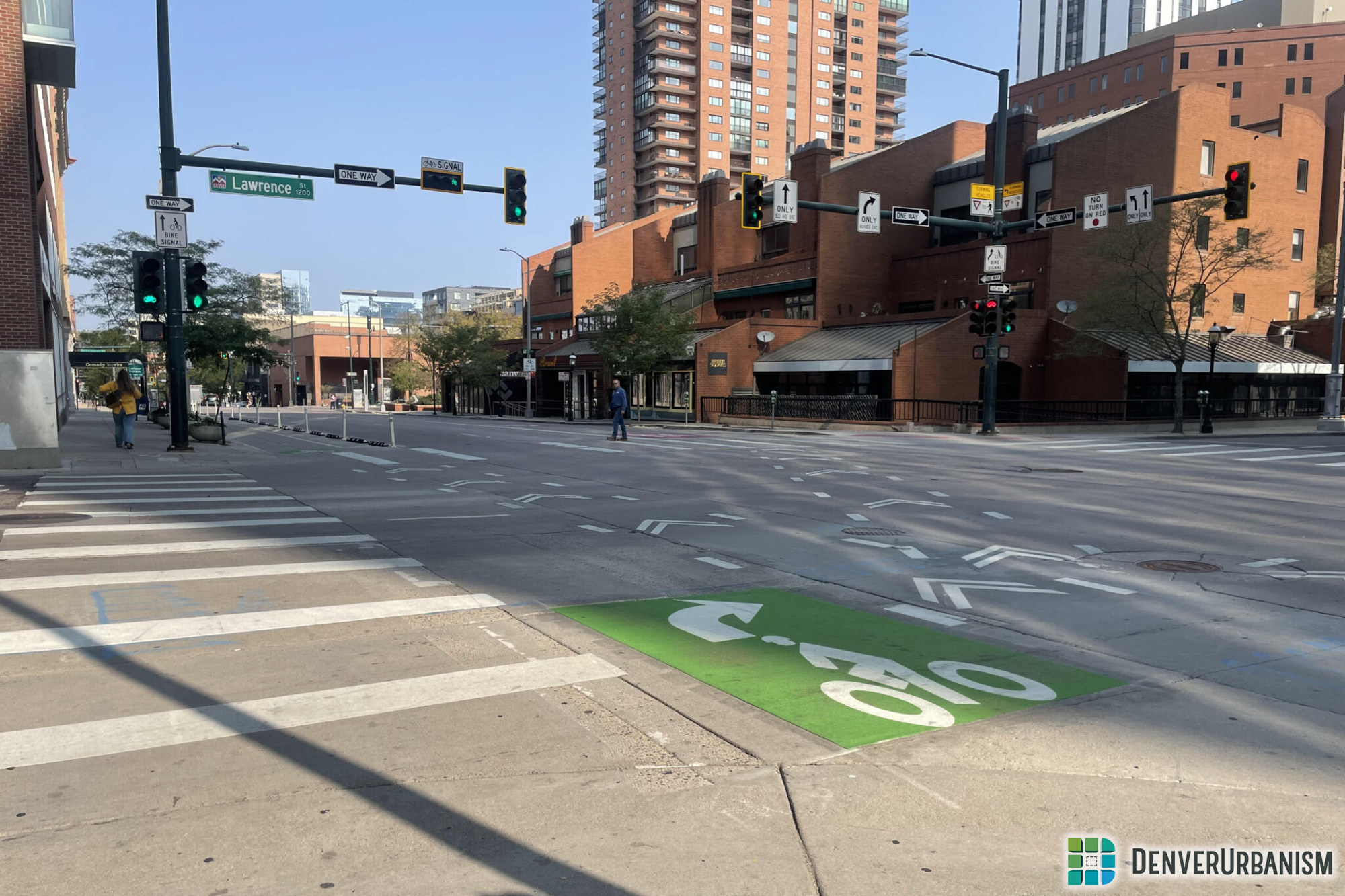Regarding the recent and ongoing kerfuffle taking place in Uptown surrounding a new development being built with no parking, much has been said regarding the “impact” to the neighborhood. I find this to be an interesting view in that it implies that an important function of a neighborhood, the function to which the “impact” would cause so much distress, is parking. Is that the kind of neighborhood people want? One in which the primary and ongoing concern of residents is the “impact” of parking? Who wants to live in a neighborhood whose primary value is car storage?
It’s interesting that we Americans, we Denverites, have chosen to define ourselves and our places by our cars rather than by our abodes. In as much as we think about our neighborhoods, they are often defined by how conveniently they store our cars. New residential developments in Denver, from single-family houses all the way up to luxury apartment towers, are usually viewed as acceptable as long as they have a place to store our cars. Or perhaps more importantly, a place to store our neighbors’ cars so that we can have the parking spot in front of our house. The provisioning of our cars has come to matter more than the form of our neighborhoods or the needs of our city, but I feel that as our cars have grown in importance, so have our neighborhoods been diminished.
The new development in Uptown proposes to include a restaurant, one which would be conveniently walkable and which would provide a service to the neighborhood; an amenity; cachet. One might even say it will have an “impact”. So why is parking considered to be more impactful than people? I choose to say people because of who will benefit: not cars, but people—most likely neighborhood people. People will work there, it will provide jobs. People will eat there, it will provide food. People will meet there, it will provide a space for the community. People will drink, talk, flirt, and converse there, it will provide memories. What it won’t provide—parking—is incidental, even trivial. That folks in Uptown are willing to give up the opportunity to positively impact the people in their neighborhood baffles me. That they’re willing to deny the opportunity for people to live above and enjoy this amenity seems… ungenerous. All of this opposition is in the name of protecting what residents view as “their” on-street parking.
Is this where our priorities truly have shifted? Are we correct in allowing this focus on parking to continue to define our neighborhoods, our opportunities, our lives and those of our neighbors? I say it’s better to build a place where we can walk to our daily needs rather than sit impatiently at the wheel waiting for the light to change. I say it’s better to build a community that welcomes new neighbors in an attitude of comity and friendliness rather than fear that they might steal “our” parking spots. I say it’s better to build our way to prosperity rather than sit behind a wall of zoning and claim that “the pie can never be any larger—this is as much as there is and there can never be more”. That’s the kind of “impact” I want.













I’m of two minds about this. On one hand it’s a different perspective on development, on the other hand, it’s vastly different from what we are used to. It’s interesting at the very least.
It’s ironic and possibly the height of hypocrisy, wanting other people to have their own parking because you don’t and you don’t want the responsibility and lack of convenience because of it.
It is just a question of what was first, the chicken or the egg. In 15 years when self driving cars are the norm and owning a car is a nuisance, no new housing projects will have parking. My questions is does the current project in question provide cheaper apartments by saving on the parking or does the developer just line his own pockets. If so, market forces will hopefully adjust for that.